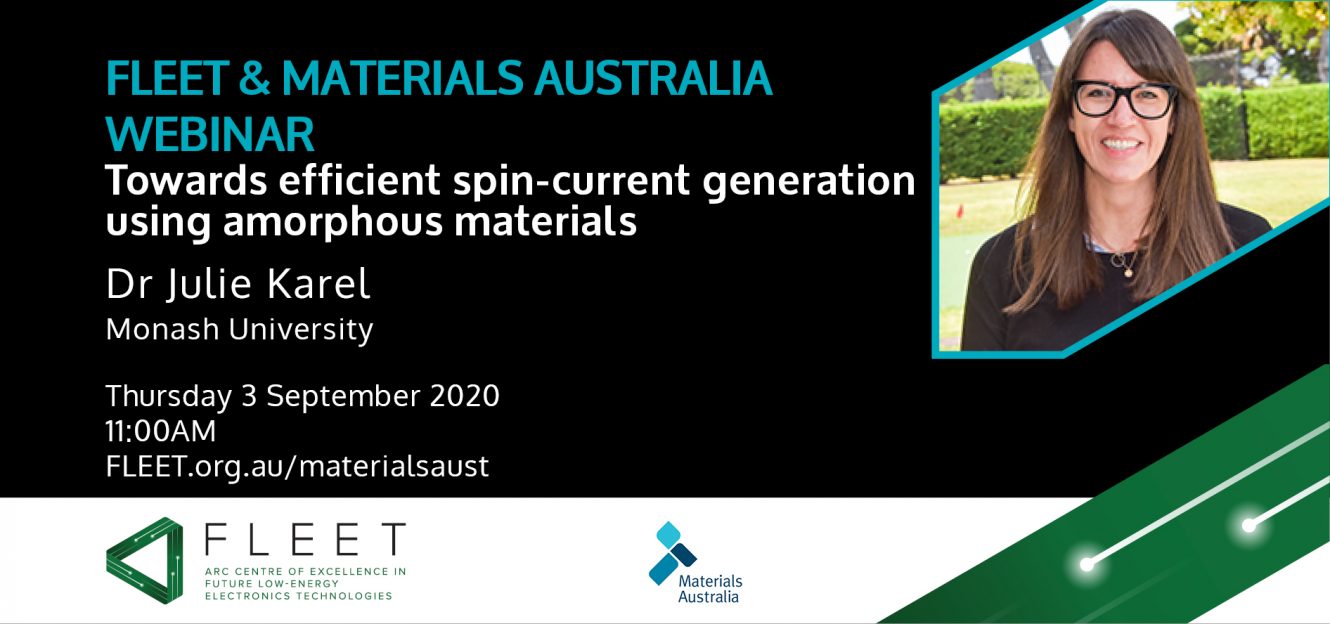-
3 Sep 2020
11:00 am - 12:00 pm
- Presented by Materials Australia and FLEET
- Live-streamed 11AM AEST Thursday 3 September
- Dr Julie Karel, Monash University
Catchup – watch Julie’s talk on youtube
Download seminar flyer here.
Electronic data is being produced at a breathtaking rate.
In fact, each year more data is stored than has been written in all prior human history.
With 8% of global electricity already being consumed in information and communication technology (ICT), and that energy-use doubling every decade, low-energy data-storage technologies are therefore a key priority in advanced electronics.
In this talk, Julie will review promising non-volatile memory technologies and discuss the present materials challenges associated with them.
She will describe her own work at Monash University developing materials that can efficiently generate spin currents, particularly the use of amorphous materials.
Because these materials lack long-range order, they are typically not considered for such applications. However, they offer the advantages of being extremely tolerant to defects and generally lower in cost.
Julie will ultimately demonstrate the promise of these systems in generating substantial spin currents, which may be applicable for a variety of emerging non-volatile memory applications.
FLEET Chief Investigator Dr Julie Karel conducts research at the intersection of materials science and condensed-matter physics, to develop new materials for emerging low-energy nano-electronic and magneto-electronic devices.
Within FLEET, Dr Karel pursues two research streams:
- Modification of materials through ionic liquid gating, towards FLEET’s goal to engineer artificial band-structure effects and non-trivial topological systems through materials and heterostructure design
- Understanding topology and Berry phase in amorphous and thin-film materials with strong spin-orbit coupling, with potential to identify an entirely new class of materials hosting non-trivial topology.
FLEET (the ARC Centre of Excellence in Future Low-Energy Electronics Technologies) is a collaboration of over 100 researchers developing a new generation of ultra-low electronics.

